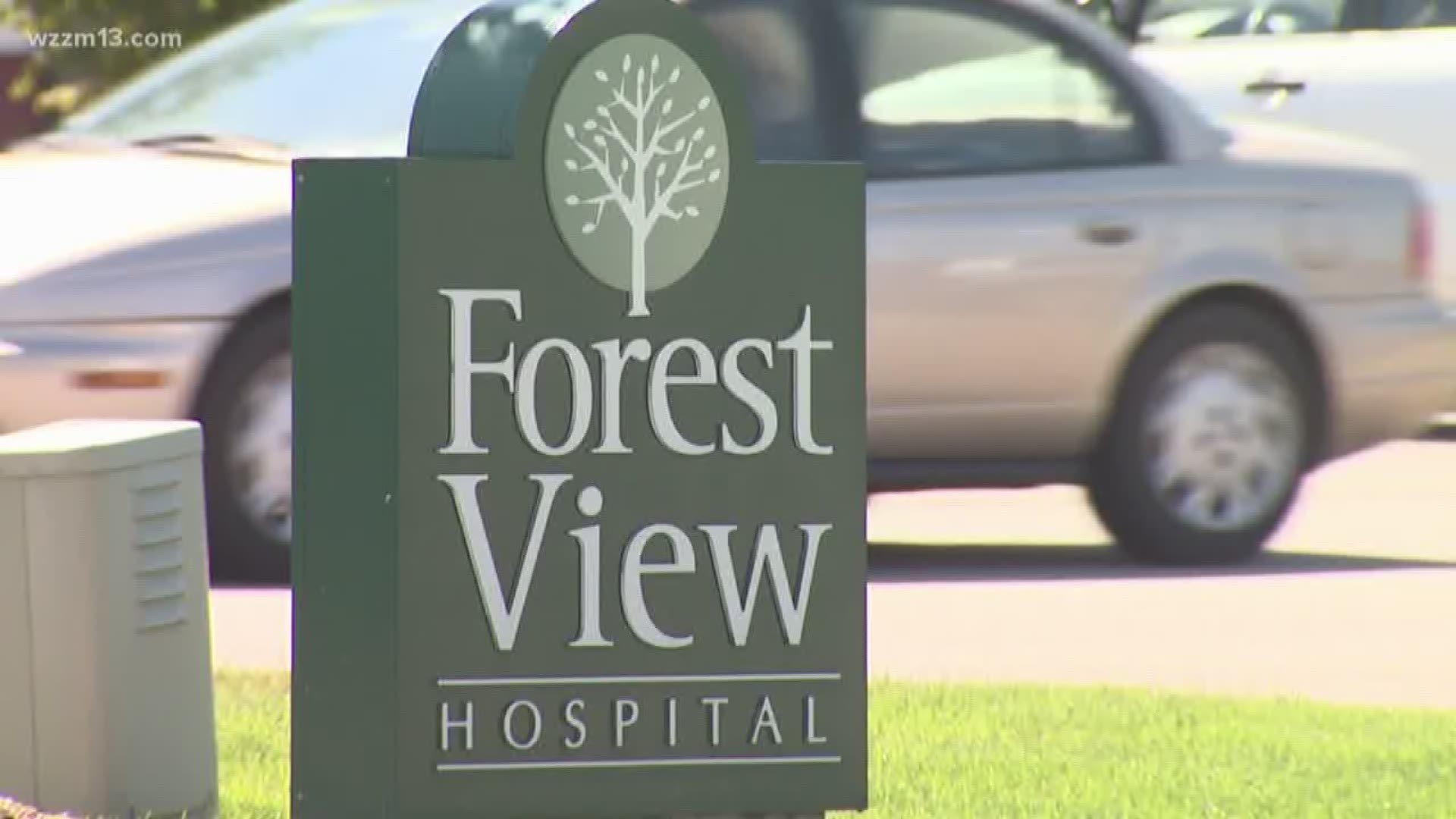GRAND RAPIDS, Mich. — The shooting deaths of three children by their mother, who had a history of mental illness, underscores the need for accessible mental health services, according to Kent County leaders.
Aubrianne Marie Moore, 28, killed her three daughters with a bolt-action rifle Monday afternoon before turning the gun on herself.
She received treatment five months ago after being diagnosed with paranoia and unspecified schizophrenia.
“We’re dealing with it as a community; it’s not just a criminal justice thing,’’ Kent County Prosecutor Chris Becker said. “It impacts everybody.’’
Kent County Sheriff Michelle LaJoye Young said the crime took a toll on investigators.
“This is probably one of the most difficult situations we’ve ever come across as law enforcement officers,’’ she said. “The officers have had a very difficult time with this because it involved kids. It seemed so senseless.’’
Kent County deputies were called about 3 p.m. Monday, Feb. 18 to a home on 19 Mile Road NE near North Division Avenue on a report of four individuals suffering from apparent gunshot wounds. The children were found dead in a car.
They were identified as Alaina Rau, 2, Cassidy Rodery, 6, and Kyrie Rodery, 8. The girls were shot in a wooded area nearby, loaded into a car and driven to the address where their bodies were discovered. Moore’s body was found in the driveway.
The owner of the home where the bodies were found was the father of the youngest victim.
"It appears that mom had a substantial amount of mental issues,’’ LaJoye-Young said.
Those issues were highlighted in a petition for mental health treatment filed in Newaygo County Probate Court in September. Moore was living at an address near Howard City at the time.
A social worker at Spectrum Health United Hospital in Greenville indicated that Moore was “keeping her kids home from school because the television told her there would be a school bus accident today,’’ court records show.
The social worker’s petition for mental health treatment also noted that Moore “stays awake at night believing people will break into her home’’ and “is not eating, believing food is being poisoned.’’
She was taken to Forest View Psychiatric Hospital in Grand Rapids Township, where a recommendation for hospitalization was made.
Moore stayed at Forest View for 11 days; she was discharged Sept. 28 on what is called a deferred status.
Grand Rapids attorney Charles Clapp, who has handled hundreds of petitions for mental health treatment, says deferred status is an agreement by the patient to work a treatment plan for 90 days.
The agreement typically requires the patient to take prescribed medications and meet with mental health professionals, he said.
If the person receiving treatment has minor children, it is not a foregone conclusion the kids will be removed, Clapp said.
“Just because someone has a mental illness does not make them, per se, an unfit parent,’’ Clapp said. “They’d have to show the children are at risk.’’
Becker, the Kent County prosecutor, says plans are in the works to have a facility where people experiencing a mental health emergency can be taken other than jail or a hospital emergency room.
“It’s something in between where they’re kept safe and can maybe get the treatment they need,’’ Becker said. Police, the prosecutor’s office and Network 180 representatives are among those working to bring a crisis center to fruition, Becker said.
“You’re seeing us slowly build a better system, but unfortunately, it takes time,’’ he said.
Clapp said he believes such a facility would be beneficial for the community. “I applaud that; I think it’s a great idea,’’ he said.
Deep cuts in mental health funding since the 1990s and the closings of state hospitals have made it more difficult for people to get needed care, he said.
“I think we’ve slashed funding for mental health care for years, but saying that, that doesn’t mean it would have prevented this from happening, either,’’ Clapp said. “This woman was obviously afflicted with such a mental illness that what happened is just terrible.’’
►Make it easy to keep up to date with more stories like this. Download the 13 ON YOUR SIDE app now.
Have a news tip? Email news@13onyourside.com, visit our Facebook page or Twitter.

